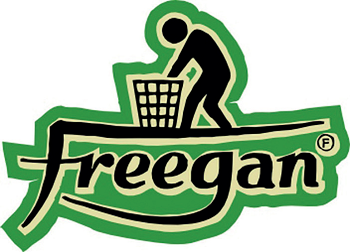Leftovers for Dinner
Andy Wallace has invited me to dinner while I interview him, so I meet him at 8 o’clock. We don’t meet at some charming local café or new Japanese sushi bar, but at the back of the local supermarket beside the rubbish bins. 1 ...................... ‘Look at this,’ he calls, beckoning to me. ‘Have a tuna sandwich-they look delicious. And here’s some almond croissants. And we’ve also got bananas and some yoghurt. Fantastic.’
Andy is a ‘freegan.’ He can perfectly well afford to buy food, but he chooses not to as a protest against our shamefully wasteful consumer society. ‘It’s annoying,’ he explains, as he tucks into a crayfish and lettuce baguette. ‘This food is perfectly good and could feed at least thirty people. It should not be in the bin in the first place.’ 2 ...................... And it’s not just the big supermarkets that waste food-we are all just as guilty. 3 ...................... Lord Haskins, the government’s food and farming adviser, said “We are very greedy when we go and shop. Our eyes are bigger than our stomachs in supermarkets.” 4 ...................... The food redistribution charity, ‘Fareshare’, specializes in collecting high-quality food before it is past its sell-by date, and taking it to the many charities who feed our country’s poor and vulnerable. Although the company has doubled in size in the last year, it is simply not able to cope with the endless supply of wasted food on its own. For a better example, we need to look to that enormous monument to consumerism which is the USA. 5 ...................... If only our government supported these redistribution charities, along with forcing our food businesses to cooperate, then it would be possible.
At the moment, most of our nation’s surplus food goes, along with the other rubbish, to one of our many landfill sites, where it decomposes into methane-a greenhouse gas over 20 times more destructive to the planet than carbon dioxide. 6 ...................... Freegans feel strongly that our wasteful consumerist culture with all its endless producing, packaging, buying and binning, is entirely to blame for the destruction of the planet. So, as a freegan, Andy is committed to taking as little part in this massive cycle of consumerism as possible.’ ‘I just never buy food,’ he explains. ‘7 ...................... I also recycle and mend everything. I actually haven’t bought anything new for years, and do you know what – I haven’t needed to. In fact, it’s amazing what you don’t really need!’

